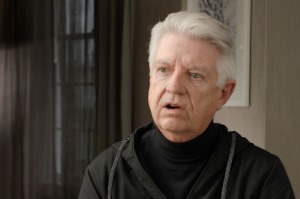Egypt's Protesters Dissatisfied with Morsi's Decision to Rescind Decree
A day after President Mohamed Morsi agreed to revoke the controversial decree that gave him sweeping powers, an influential opposition group warned Sunday that his refusal to cancel a forthcoming referendum on draft constitution would deepen the political crisis.
"It is making things a lot worse," Reuters quoted Ahmed Said, member of the National Salvation Front coalition and head of the liberal Free Egyptians Party, as saying. "I cannot imagine that after all this they want to pass a constitution that does not represent all Egyptians."
It appears that Islamist President Morsi's real intent behind the last month's decree, which put his office beyond judicial oversight, was to prevent the nation's apex court from dissolving the Islamist-dominated constituent assembly which drafted a constitution that is being rejected by secular and non-Islamist forces.
Morsi says he will go ahead with the constitutional referendum, scheduled for Dec. 15, despite warnings by opposition leaders.
"We have broken the barrier of fear: A constitution that axes our rights and freedoms is a constitution we will bring down today before tomorrow," opposition leader Mohamed ElBaradei said on Twitter. "Our strength is in our will."
ElBaradei heads the Front, which has urged Egyptians to carry on with their demonstrations against Morsi.
On Saturday, Morsi decided to revoke the Nov. 22 decree, which had prompted tens of thousands of Egyptians to take to streets – as they did during the revolution that overthrew longtime autocratic Hosni Mubarak early last year. The article that placed all of Morsi's decisions beyond judicial review is gone,Mohammad Salim al-Awa, spokesman for a national political dialogue said.
Morsi's decision came the day protesters broke through barbed wire at the presidential palace on Saturday to seek his ouster.
Morsi, who is from the Muslim Brotherhood, is going against the will of the majority of Egyptians with apparent support from the military, which called for dialogue between Morsi's supporters and his liberal opponents on Saturday – two days after the president called for a national dialogue.
Egyptians are allowed to express their views but "far from all displays of violence," a military spokesperson said on state media. The solution to political crisis should not contradict "legitimacy and the rules of democracy," he said, adding that it was the army's duty to protect national interests and secure vital state institutions.
The draft constitution seeks to give the military many powers, and it is therefore in the interest of the generals to let Morsi go ahead with the constitutional referendum.
Morsi's efforts to please the military are visible. State-run Al-Ahram said on Saturday that the president will soon give judicial and protective powers to the military. Drafted with the participation of army leaders, a new law will task the armed forces with maintaining security and protecting vital installations in the state until a new constitution is promulgated and parliamentary elections are held.
With the military's support, Morsi apparently hopes to Islamize the nation with the draft constitution. Egypt's Coptic Orthodox Church and secular members had pulled out of the panel, saying they had been marginalized.




























